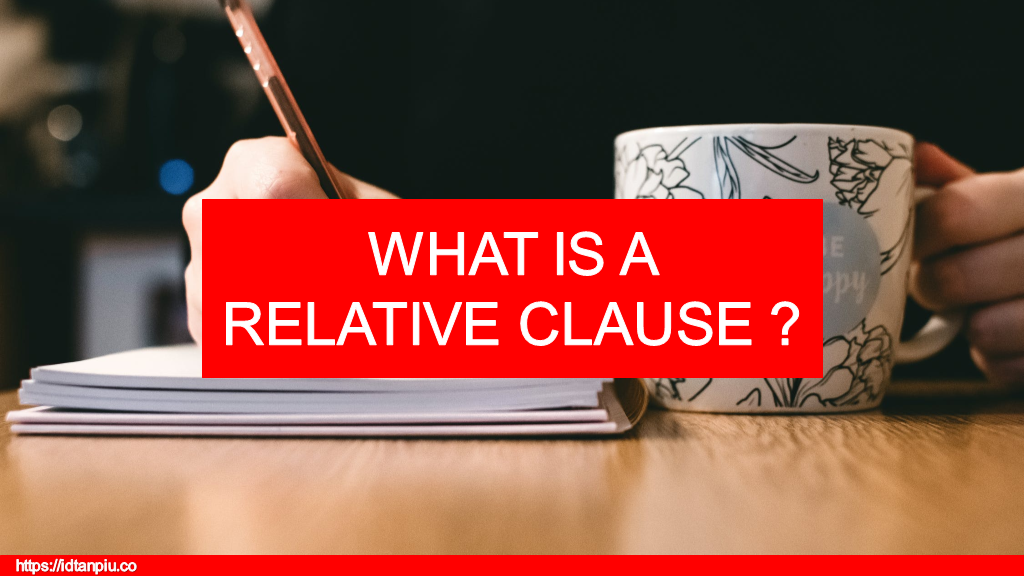
ESL Lesson: What is a Relative Clause ?
ESL Lesson: What is a relative clause?
One of the challenges in writing that students are facing is their ability to write longer sentences. Besides learning complex structures, another way is to learn how to use relative clauses.
What is a relative clause?
A relative clause is a type of dependent clause with a subject and a verb, but it cannot stand on its own as a sentence. Most sources call it an adjective clause as it functions as an adjective by giving more details about a noun.
To learn this clause, one must understand relative pronouns first.
Relative pronouns are pronouns that introduce a relative clause. These pronouns relate to the subject, thus having the term relative pronouns.
- The person who smiled at me last night was my friend’s ex-girlfriend.
In the above example, “who”:
- relates to “The person”, which “who smiled at me last night.” modifies
- introduces the relative clause “who smiled at me last night.”
There are five basic relative pronouns and their examples.
- Who – Subject (person) –
- Wayne, who was in charge during that time, ordered the code red.
- The young man who you saw last night with Bruce is my cousin.
- Whom – Object (person)
- The girl whom you talked to last night was my ex-girlfriend.
- Shiela from accounting, whom you taught my sister, asked for your number.
- Whose – possession
- The student whose phone just rang should stand up.
- Students whose parents are wealthy pay extra.
- Which – things
- The room which we booked for several months ago became unavailable.
- The classes which she did not attend will be refunded.
- That – things and people
- I hate the girl that bullied me in high school.
- I like to have a new model of the laptop that was recently released.
What is a restrictive relative clause?
These are the relative clauses that give information to the subject, and without this, the idea is incomplete. We do not put commas.
Example:
- I like the gift that she gave me last Christmas.
I like the gift, and she gave me last Christmas. Both of these ideas are required to be together to make the sentence have sense.
What is the non-restrictive relative clause?
These relative clauses are additional information only, and you can add this to improve the sentence but not necessary.
Example:
My car, which I bought last week, is totaled.
- The main idea is the car is totaled. We just added information.
The new software, which the new manager suggested, created a lot of bugs in the system.
Sources:
- https://writingcenter.unc.edu/tips-and-tools/relative-clauses/
- https://www.englishclub.com/grammar/pronouns-relative.htm
- https://sentence.yourdictionary.com/

Ian Tanpiuco is an ESL and virtual assistant. With a decade of experience, he has become an expert in his field. Dedicated to helping others achieve their goals, Ian works tirelessly in the classroom or as a virtual assistant.